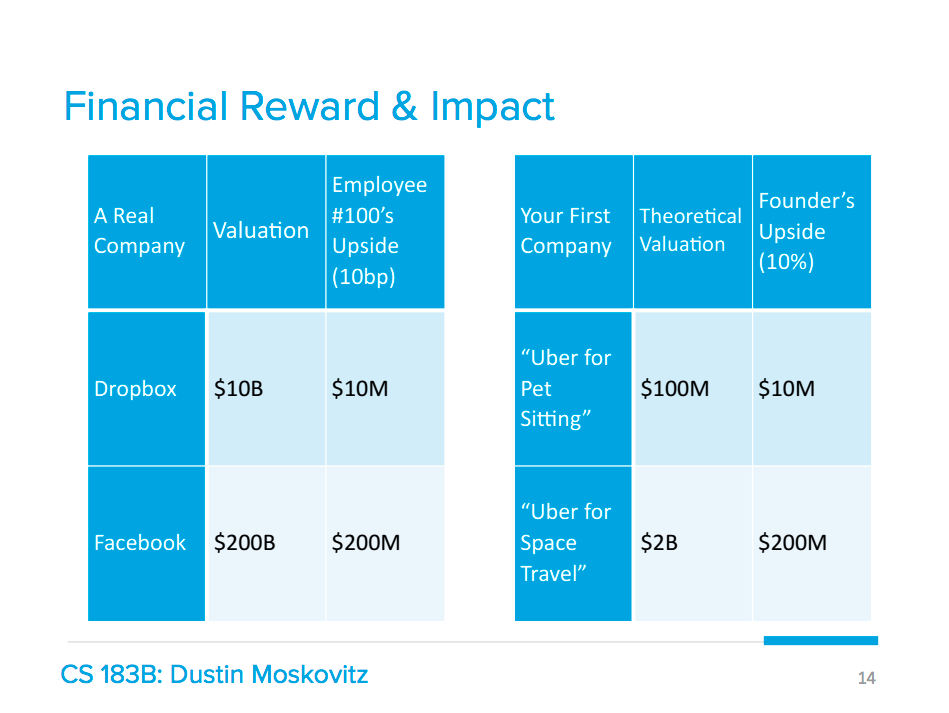( Source : https://www.entrepreneur.com/article/336555 )
A good documentary is informative and educational without skimping on the entertainment value.
The best filmmakers entice the viewer so they want to dive into the subject. If you can tug at their heartstrings so they feel real emotion and passion for the subject, then you’ve succeeded in getting your message across.
Whether you’re looking to relax and decompress, or you want to boost your motivation and enrich your business knowledge, these are the top 10 most entertaining business documentaries that you’ll actually learn something from.
1. Becoming Warren Buffett (2017)
With a net worth of over $60 billion, Warren Buffett is truly a one-of-a-kind billionaire. An enormous amount of invaluable knowledge is offered up in Becoming Warren Buffett, from which we can extract important life lessons from the humble billionaire, his family and his peers.
The legendary investor still lives in a modest home in Omaha and drives himself to the office every morning to manage Berkshire Hathaway. This documentary chronicles Buffett’s evolution into one of the wealthiest and most respected men in the world. The film takes us on a journey in which we see how the legendary investor started out as an ambitious, numbers-obsessed boy from Nebraska and ended up becoming one of the richest and most respected men in the world.
Related: Warren Buffett and Bill Gates’s Top Secret to Success
2. Generation Startup (2016)
Follow 6 recent college graduates who are would-be entrepreneurs over 17 months. We watch how they put everything on the line as they try to launch startups in Detroit. Generation Startup puts a human face on the Millennial startup culture by showcasing these young entrepreneurs’ successes and failures, how they wrestle with self-doubt and uncertain rewards.
The film takes us to the front lines of entrepreneurship in America. It celebrates risk-taking and urban revitalization, and gives an honest and in-the-trenches look at what it really takes to launch a startup. The film received rave reviews from successful entrepreneurs like Arianna Huffington and Daymond John.
3. Burt’s Buzz (2013)
This humorous, authentic and compelling documentary tells the story of Burt Shavitz, a reclusive beekeeper who reluctantly became one of the world’s most recognizable brand identities. Burt’s Buzz pays tribute to Shavitz, the man behind Burt’s Bees.
He is a quiet curmudgeon who dislikes middle-class comforts, enjoys solitude and forgoes nearly all technology. Viewers also learn about Shavitz’s complicated relationship with co-founder Roxanne Quimby, who eventually bought Shavitz out of the business. Quimby later sold the business to the Clorox company for a staggering $177 million.
Related: Burt Shavitz, the Bearded Hippie Co-Founder and Face of Burt’s Bees, Dies at 80
4. Betting on Zero (2017)
Dive into the complex world of Herbalife, the international nutritional products company accused of being a huge pyramid scheme. Betting on Zero follows billionaire hedge fund titan Bill Ackman and several former Herbalife distributors after Ackman takes a short investment in Herbalife, which is basically a billion-dollar bet that the company will soon collapse.
The film also chronicles Ackman’s feuds with Herbalife CEO Michael O. Johnson and investor Carl Icahn, and the resulting controversy over both the short and Herbalife’s business practices.
Multilevel marketing (MLM) firms like Herbalife have long been the subject of alternating popularity and concern. By focusing on Herbalife, we get a bird’s-eye view of the power of messaging and how it can whip supporters into a frenzy, even if the company leaves a bevy of unsatisfied former employees in its wake.
Related: Activist Investor Ackman Makes His Biggest Bet Ever
5. Tony Robbins: I Am Not Your Guru (2016)
Get an insider look behind the scenes at Tony Robbins as he prepares for his annual Date with Destiny seminar, attended by over 4,500 people in Boca Raton, Florida. Tony Robbins: I Am Not Your Guru captures both the immense effort of producing this live seminar as well as the life-changing transformations of the participants as they happen in real time.
This documentary film aims to pull back the curtain on Tony Robbins, an internationally renowned life coach/motivational speaker/practical psychologist/business strategist and whatever else you want to call him. The film shows the intensive planning and detailed postmortems that accompany each daily session during his annual seminar.
6. Freakonomics (2010)
Adapted from the bestselling book by Stephen Levitt and Stephen Dubner, the documentary film Freakonomics explores how science and economics help explain our everyday behavior. The film blends a thoughtful analysis with frequent doses of lighthearted humor. The film is made up of four distinct chapters, each helmed by a different filmmaker.
Morgan Spurlock applies his comically satirical style to a segment about the ramifications of baby names. Alex Gibney investigates rampant corruption in the world of sumo wrestling. Eugene Jarecki explores the possible reasons for the dramatic drop in crime rates in the 1990s and offers a surprising and controversial explanation. And Rachel Grady and Heidi Ewing explore the idea of offering financial incentives to students to improve their grades.
7. Steve Jobs: One Last Thing (2011)
The PBS documentary Steve Jobs: One Last Thing is a tribute to the visionary entrepreneur who was the co-founder and CEO of Apple. Jobs died in 2011. During his time at the helm of Apple he managed to change much of how we work, interact and communicate with one another.
The documentary examines how his talent, style and imagination have shaped all of our lives and looks at the influences that molded the man himself. The film takes viewers through Jobs’ career trajectory and the development of his memorable product presentations. It’s a moving look at the life of a man who pursued his passions and changed the world.
Related: Steve Jobs and the Seven Rules of Success
8. Food, Inc. (2008)
Oscar-nominated documentary Food, Inc. exposes a system rife with corrupt, secretive and abusive practices, and whose products contribute to the rising epidemic of obesity and the resulting increase in deadly diseases. This film lifts the veil on our nation’s food industry, exposing the highly mechanized underbelly that’s been hidden from the American consumer with the consent of our government’s regulatory agencies.
The film is based on the premise that virtually everything we eat comes from corporations that value their own profit over consumer and environmental health. It raises questions about what companies should do when their financial interests conflict with their customers’ well-being.
9. Jiro Dreams of Sushi (2011)
Jiro Ono is the owner of a humble 10-seat, sushi-only restaurant located in a Tokyo subway station. But Jiro, who at the time of the film’s release was 85 years old, has made it his life’s work to become the world’s greatest sushi chef, and by many accounts, he succeeded. His tiny restaurant is a three-star Michelin recipient and his customers are willing to spend $300 a plate.
Jiro Dreams of Sushi shows how the most successful business owners are the ones who are passionate to the point of obsession. This is evident in the intensity and devotion that Jiro has for his work and how he continues to strive for perfection daily.
10. Enron: The Smartest Guys in the Room (2005)
This documentary tells the incredible story of Enron and the executives that ran the company. Enron: The Smartest Guys in the Room is the inside story of the spectacular rise and fall of one of the most scandal-ridden corporations in American history.
Based on the best-selling book of the same name, this film takes a look at the collapse of the once seventh-largest company in the United States, where executives misappropriated billions of dollars, leaving investors scrambling and ruining the life savings of thousands of employees. However, while they may have committed terrible crimes and gotten away with them for close to a decade, you can’t ignore the fact that these guys were actually brilliant men and brilliant leaders.
Related Posts
75
No one ever said being an entrepreneur would be easy. A million obstacles seem to stand in the way each and every day. The naysayers and budget woes can be enough for the average person to start waving the white flag. But you are not an average person: You’re an entrepreneur.…
Tags: documentary, business, film, success, startup
73
Intressting Jack Dorsey Interview.
Tags: success, startup
71
The question of how Uber would spend its billion-dollar investment was never really much of a riddle. More rides in more places has always been the plan. But with its ten-figure cushion, the San Francisco-based ride-hailing startup can be more cunning about how it tries to get huge. Uber wants to grow…
Tags: success, startup
71
Often, the only way to get ahead is to have a great plan. Which is exactly what makes the companies below so special. It's not just that they're making the big bucks (and they are doing that). This small group of companies from the Inc. 5000 class of 2014 are notable for their…
Tags: business, success, startup
69
Source : https://medium.com/i-m-h-o/good-and-bad-reasons-to-become-an-entrepreneur-decf0766de8d Recently we hosted a Q&A at Asana that I participated in with Ben Horowitz, Matt Cohler, and Justin Rosenstein. Marcus Wohlsen from Wired attended and wrote an article that discussed our views on the culture of entrepreneurship in Silicon Valley. This is an important topic, so I want…
Tags: company, entrepreneurs, success, startup









